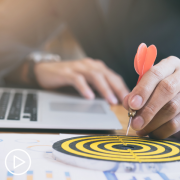How Can Myeloma Caregivers Provide Support?
How Can Myeloma Caregivers Provide Support? from Patient Empowerment Network on Vimeo.
Some multiple myeloma caregivers may be unsure or overwhelmed in how to move forward in supporting a patient. Expert Dr. Rafael Fonseca shares advice for caregivers to assist in practical matters, decision-making, and providing emotional support to their loved one.
Dr. Rafael Fonseca is the interim director of Mayo Clinic Cancer Center and serves as the director for Innovation and Transformational Relationships at Mayo Clinic in Arizona. Learn more about Dr. Fonseca here.
Related Programs:

|

|

What Key Questions Should Myeloma Patients Ask About Treatment? |
Transcript:
Katherine:
We have a question from the audience. This one is from Sarah. Her question is, “What advice do you have for caregivers? How can I be supportive during appointments?”
Dr. Fonseca:
That’s a great question.
I have experienced this both as a physician, as well as a caregiver myself to someone who has had a cancer. I think I’m going to say that there are several roles that caregivers play. Some of them are obvious and I’m going to call them practical or perhaps even pedestrian, you know, organizing the activities of every day. That’s important, but a lot of people can do that. The second role is to be in assistance for the knowledge that is needed for some of this decision-making. Sometimes patients can be overwhelmed, and we need some support and some vetting and peer process from a trusted and loved person so you can go through that.
That is very helpful, but what is essential, and the number one thing is you are first and foremost the loving family member or friend of that individual who is living through a very profound human experience. I think the first role of a caregiver has to be to express that role.
I, myself, reflect on moments where perhaps in a quick, reactive way I wanted to solve some of the immediate practicalities and what was needed most was a direct support. Even if I face a situation today, if I was, again, a caregiver for someone with a serious diagnosis with cancer, I would start with that priority. Number one, you are the support and the loving person. Number two is I will try to provide information. And number three, hopefully you can help with meals and the driving and what have you. But there’s many more people who can come and help in that regard. Not a lot can do the first part.



